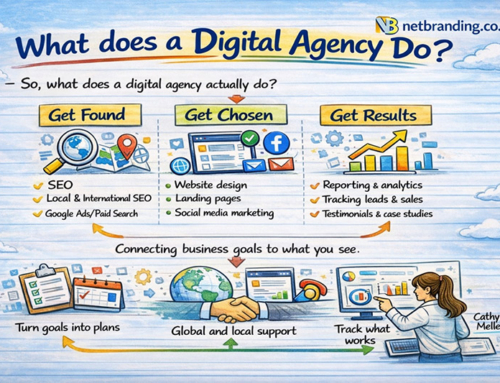How To: Keyword Research for Website Ranking, Visibility and SEO

Even amidst the constant updates that Google makes to its search algorithm, for internet marketers wanting to optimise websites for organic search traffic one key thing has remained consistent, and that is keyword research.
This blog will explain to you the ins and outs of keyword research. We’ll give you an idea of exactly what keyword research involves, its importance, how to blend it with your SEO strategy, and how to find the optimal keywords for your site.
What is keyword research?
This is a process that involves searching for and analysing certain search queries that users input into Google, with the aim of using the results for a marketing purpose. That could be for SEO improvement or digital marketing in general. This research will find the popularity of certain terms, their ranking difficulty, whether you should focus on them, and other important marketing data.
Why is it important?
Keyword research can provide insight into the terms that your target audience is searching with on Google, and it reveals which terms are best to focus on for your brand or business. This information can decide your content and your wider marketing strategy.
If your content is being put in front of your target audience, then you are likely to boost your website traffic. You should therefore target the searches that these people are most often using to find products or services like yours.
With inbound marketing, the focus is on creating content based on what people are trying to find, which means that your audience is coming to you rather than you trying to seek them. The key to achieving this is effective keyword research.
On a site note, when Google puts you up as a solution, this also places you as an expert in your industry, simply by being found.

What are the benefits of keyword research?
There are numerous benefits to keyword research, but some of the most popular benefits are:
Insight into Marketing Trends:
– Keyword research can reveal marketing trends and help you centre your content on relevant topics and search terms.
Customer Acquisition:
– If your site has relevant content that your target audience is searching for, you will be able to meet their needs with a strong call to action that will encourage them along the customer journey.
Traffic Growth:
– When you find the most relevant keywords for your website, you’ll rank much higher in search results for queries related to your content, leading more people to click onto your site.
How do you do keyword research?
The following list is a process for keyword research that will help you create a list of words that you should be focusing on. This will then make it easier to implement these terms into an SEO or digital marketing strategy, and your site will now be found via the keywords most relevant to you.
But before we get into it, it is important to keep these following three key elements of keyword research in mind:
– Relevance: make sure the keywords are relevant and that they meet the searcher’s needs.
– Volume: make sure you use high-volume keywords that searchers most often use to find websites like yours.
– Authority: enrich your site with good content as Google prioritises sources it deems authoritative.
Now let’s get back to the question at hand: keyword research.
First, create a list of relevant topics based on what your business or brand does and consider the topics that you want to rank for based on general terms. Come up with a list of 5-10 general topics that you believe are most important and relevant, and then use these general topics to create more specific keywords later on by repeating this process.
If you are a blogger these will most likely be the things that you most often write about. It is important to put yourself in the position of your target audience, think about what kind of topics they would search for and that you want your business to be found by. Say you are a company selling digital marketing services, your general topics may look like this:
– ‘SEO’
– ‘Email marketing’
– ‘Social media marketing’
– ‘Blogging’
– ‘Inbound marketing’
– ‘Lead generation’
– ‘Marketing analytics’

Second, fill these general topics with specific keywords. Since you have figured out your general topics, you need to now find search terms that relate to each general topic. These will be keywords that are important to rank for in the search engine results page (SERP) as your target audience will be using these words in their specific searches.
Taking the general topic of SEO for example, you would brainstorm a range of search queries that people would use to search for that topic. This could include:
– SEO optimisation tools
– How to do SEO?
– What is SEO?
– Is SEO important?
– Best SEO tools
– Do I need SEO?
The point of this step is just to arrange all of those phrases that you think your target audience might be using when they search for services or content related to that specific general topic. The list will be refined later on to make sure that your keyword use is straightforward and relevant.
Yet, each day an increasing number of keywords are being encrypted by Google, so another clever method to come up with key terms is to look at which search terms your site is already being found by. To do this you can use software like Google Analytics, first look into the source of your site’s traffic and then look through your organic search traffic to discover the search terms that are most frequently being used to find your site.
You can do this for each general topic, and you should be able to compile a list of terms that may be very useful for implementation. Additionally, you can also check with your colleagues in Sales or Service and ask them what terms customers are most often using, or what they are most often asking. This step can actually also be a good starting point for keyword research.
Third, figure out how user intent impacts keyword research and analyse the results. User intent is becoming one of the most important factors in a site’s ability to rank highly on Google. It is crucial that your site’s content addresses the query that a searcher intended to find rather than just the one that they used.
Keywords can have many different meanings, and because user intent is so crucial to how you rank, you must be careful with how you understand the keywords that you decide to implement.
Say you want to write an article about blogs, and you choose to research the term ‘starting a blog’. Here, the word ‘blog’ could refer to a blog website or a blog post, and the searchers intent with that search will determine whether your article shows up. Is the searcher wanting to learn to how start a blog post? Or are they wanting to learn how to start a blogging site? If your content is targeting only people who are looking for the former, then you need to be sure of the keyword’s associated intent before you commit to it.
To check what a searcher’s intent is, you can plug the term into Google’s search engine and see what results come up in relation to it. Make sure that the content that shows is similar to what you are creating and wanting to promote with that phrase or term.
Are there keyword research tools?
Indeed there are, and keyword research tools can be sometimes used by individuals. SEO and keyword research tools can show you exact match keywords and match phrases based on the content that you have created, and this can also help you think of more ideas.
Two popular keyword research tools are:
– Google Keyword Planner
– Keywords Everywhere
Can you do keyword research on Google?
The short answer is yes, but you won’t be able to come up with exact word or phrase matches. However, if you are struggling to come up with a list of keywords that searchers might be using, look at the related search terms that come up when you input a phrase into Google search.
After searching your phrase, scroll to the bottom of the first page, and you’ll see a list of options that relate to your search phrase. These suggestions can inspire other ideas for keywords that you may want to implement.

What are the best keywords for SEO?
It is important to understand that there is no such thing as the ‘best’ keywords, what is best for you is just those terms that are searched most often by your target audience. And keeping this in mind, it is then up to you or a digital marketing agency to create an effective strategy that will boost your page rankings and increase your website traffic.
The ‘best’ keywords for your digital marketing or SEO strategy will also take into account the three aforementioned elements of relevance, volume, and authority. It is good practice to find frequently used and searched key terms that you can use in your content to be search-engine competitive. But this implementation will also depend on:
1. The competition that you are facing
2. The quality of your content
If you are acutely aware of your competition and their level relative to you, and if your content is of high-quality and exceeds that of sites ranked above yours, then you will be in a good position to soon see better search result rankings.
If you follow the steps that this articles has laid out, you should have a list of keywords that will help you centre on the most relevant topics that are related to your content and business. This list will help you achieve some short-term and long-term ranking, visibility, and search traffic gains.
Make sure that you look over the key terms every so often, perhaps each quarter, but some people like to do this every other month or so, to check if they are still relevant and driving organic search traffic.
As you rank higher and gain more authority in the Googles results pages, you will be able to add more keywords to your list to help maintain your higher search presence and boost future growth as well.






